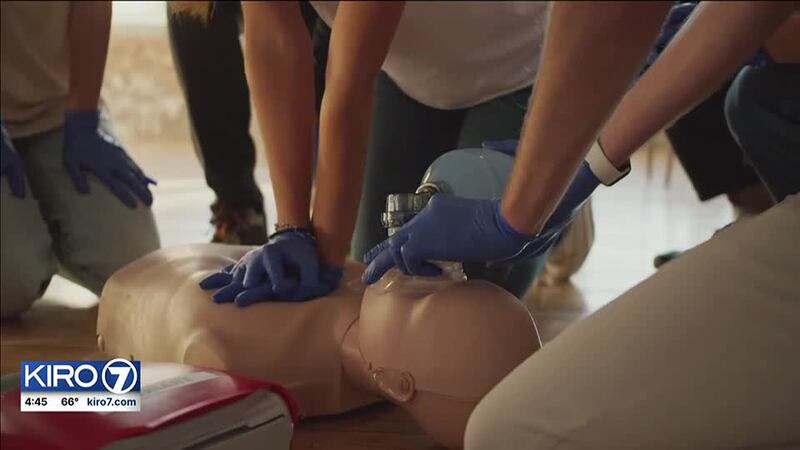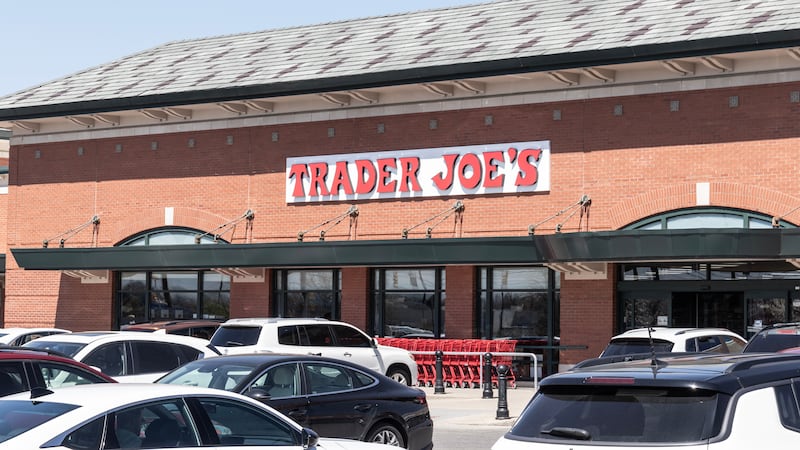SEATTLE — A Seattle-area doctor who died but was saved by CPR is stressing that more people should learn the lifesaving technique — and says you don’t have to be perfect at it.
He spoke to KIRO 7′s Ranji Sinha and said action is critical with CPR.
Dr. Brett Daniel clarified that he did technically die in Seattle while running more than a decade ago.
“Yeah, my heart stopped for 10 minutes. The electricity went bad in my heart that day,” Dr. Daniel said.
Dr. Daniel says that moment 17 years ago when he collapsed and died feels like yesterday. The morning jog with his wife almost turned into a tragedy.
“...Slowed down to stop up at Sunset Hill up in Ballard, one of my zen spots. I actually do remember the black tunnel kind of forming, and it was quiet, and not being able to breathe — thinking like, ‘Is that all there is? Huh?’” Dr. Daniel recounted.
It took almost 10 minutes to bring Dr. Daniel back by CPR. He said medics arrived, delivering four shocks on top of what was already done.
“Ninety percent of people like me die when they have a cardiac arrest,” Dr. Daniel said.
Dr. Daniel’s wife performed the CPR, knew exactly what to do, and was flawless doing it. But he says when it comes to CPR, perfect is the enemy of good.
“People are like kind of paralyzed. ‘I want to do it right, I’m not sure what to do,’ (and) instead of acting, they call 911 and maybe there is waiting for someone else to help. What I want people to know is you can do this. Call 911, get the hands on the chest — just start pumping,” Dr. Daniel said.
Dr. Daniel says full certification for CPR takes about two hours. On Saturday, Sept. 28, the American Heart Association will have its Tacoma Heart & Stroke Walk at Cheney Stadium.
The event will feature information on CPR, but Dr. Daniel says anyone, informed or not, should act.
“I think what we’ve realized over time is the most important thing is getting that blood pumping. Paralysis by analysis will lose more lives,” Dr. Daniel said.
“Time really matters,” said Dr. Nicole Saint Clair, Executive Medical Director of Regence BlueShield.
Dr. Saint Clair also spoke with KIRO 7 about CPR. She serves on a medical board with Dr. Daniel, and agrees that a long wait before CPR does damage every second blood is not pumping through the body and brain.
“Even non-perfect, kind of medium CPR still can effectively move some of that circulation while you are waiting for the emergency responders to come,” Dr. Saint Clair said.
A 2020 survey by King County about CPR found that 73.2% of county residents had CPR training. It also found that less than half of King County Residents — 43.6% — felt confident enough to perform it.
Dr. Daniel says your confidence, ability, and skill don’t matter: just get your hands on someone in distress.
“If they start yelling at you, ‘Stop pressing on my chest,’ you’re good,” Dr. Daniel said.
The American Heart Association has set a goal of doubling cardiac arrest survival rates by 2030. Dr. Daniel says good, bad, ugly or pretty, any CPR could save a life and get closer to that goal.
“If it would have been the morning earlier that week, I was running by myself and it was dark (when I collapsed) — I’d probably be dead…I’m living proof of how good CPR can keep you whole, can keep you around,” Dr. Daniel said.
©2024 Cox Media Group








